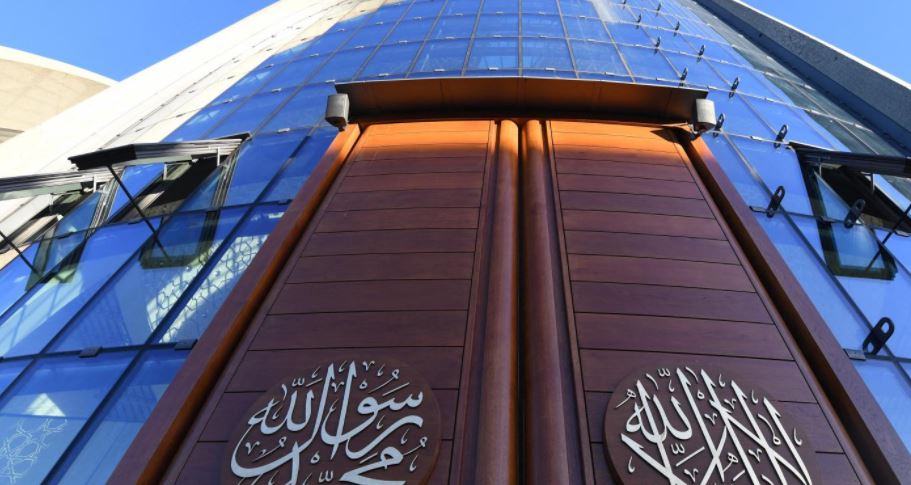By John L Esposito & Farid Hafez, Middle East Eye
In recent years a cultural war has been waged in France, Austria and Germany against studies on Islamophobia. European governments, political parties and ideologues have denied that Islamophobia is a problem in their own countries, but also in their policies towards Muslim communities.
Over the past 2 decades, the study of Islamophobia has increasingly emerged as an academic sub-field, documenting and challenging racism, discrimination, hate speech and violence against Muslims around the world.
Information on the causes and effects of Islamophobia has appeared in books, magazines, conferences, media reports and major surveys. And yet, a number of European governments are still trying to deny its existence.
In France, the government has cracked down on academic freedom of university research. French President Emmanuel Macron and his top cabinet ministers have claimed that “Islamo-leftism” threatens to corrupt French society, and especially universities.
Higher Education Minister Frederique Vidal has accused some scholars of promoting “radical” ideas, claiming that race and gender scholars see “everything through the prism of their willingness to divide, to destroy, to identify the enemy.” .
The French government and its supporters refuse to provide scholarships or debate on the emerging field of studies on Islamophobia, holding it accountable for creating and promoting a dangerous social divide.
Contemporary French philosopher Pascal Bruckner claims in his book “An Imaginary Racism: Islamophobia and Guilt” that Islamophobia is a fabrication used by Islamists as a weapon for mass intimidation of citizens. He concludes that anti-racists have become racists themselves, and calls for the protection of “Western values”.
And this kind of Islamophobic discourse has been used by governments and other European politicians to dispel any criticism of their assimilationist policies against working-class Muslim populations.
Lorenzo Vidino, a researcher accused of promoting conspiracy theories about the Muslim Brotherhood, has served as an adviser to European governments, and has been linked to a number of anti-Muslim think tanks in the US and Europe.
The Norwegian nationalist who killed dozens of young people a few years ago, Anders Breivik, relied in part on the ideas propagated by Vidino about the Muslim Brotherhood, which he said was “infiltrating” Europe.
“Vidino has argued that the Muslim Brotherhood organizations are the ‘Trojan Horses’ today, engaged in a kind of covert overthrow aimed at weakening European society from within, patiently laying the groundwork for its replacement by an Islamic order.”
He also claimed that this “new network of the Muslim Brotherhood” has a “remarkable propaganda machine” to discredit opponents through accusations of Islamophobia.
Vidino, who describes Austria as a “model for Europe’s crackdown on Islamists”, published a report on the Austrian government in 2017, claiming without any evidence that the Muslim Brotherhood was exaggerating Islamophobia incidents to foster a siege mentality. within local Muslim communities, arguing that the government and Western societies are hostile to them and to Islam in general.
He argued that the narrative of victimization, as the first step towards radicalization, could lead to acts of violence. The report provided a basis for Austrian government officials and bodies to discredit discussions on Islamophobia. The far right The Freedom Party and the People’s Party government, led by Sebastian Kurc, have a long record of Islamophobic speeches and legislation.
In Germany, the ruling Christian Conservative parties, the CDU and the CSU, recently published a study citing Muslim theologian Muhannad Korshid as saying that “terms like Islamophobia and anti-Muslim racism have become militant terms for political Islam.”
An open letter that preceded the study emphasized the importance of “not being intimidated by the baseless allegations of Islamophobia.” From this stand against the study and awareness of Islamophobia, politicians in Austria, Germany and France have labeled Islam political “,” Islamic separatism “or” Islamism “in general as the greatest threat facing European society.
This has enabled political leaders to justify drastic measures against a group of people suspected of being dangerous. As a result, we have seen police raids targeting Muslim civil society organizations and mosques in the name of state protection.
But such policies are undermining the constitutionally protected freedoms of religion, conscience, speech and thought. A recent example of the dangerous consequences of this cultural war was a police raid targeting 30 suspected terrorists in Austria last November.
Austrian Interior Minister Karl Nehammer said the operation was aimed at “cutting off the roots of political Islam” in the country. But when the suspects were questioned, they were asked questions that had little to do with violence, and more with an Orientalist perspective on Islam.
Among the questions were: What do you mean by “Islamophobia”? In your opinion, is this term justified? Are Muslims oppressed in Austria? Is global Islamic terrorism the cause of the fear that stems from Islam, or is it the oppression, especially of women or people of other faiths, by the norms of Sharia?
Do you wake your wife up for morning prayers? Do you allow your children to listen to music? Do you have non-Muslim friends? Would you allow your daughter to marry a Christian, a Jew, or an atheist? Such questions reveal the extent to which Islamophobia has become a problematic term for state authorities as state authorities continue to crack down on Muslim civil society and critical scholars.
Note: John L. Esposito is Professor of Religion, International Affairs, and Islamic Studies at Georgetown University, as well as the founder and director of the Prince Alwaleed Bin Talal Center for Muslim-Christian Understanding. Farid Hafez is a political scientist based in Vienna, co-editor of the European Report on Islamophobia. / abcnews




